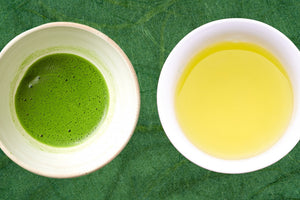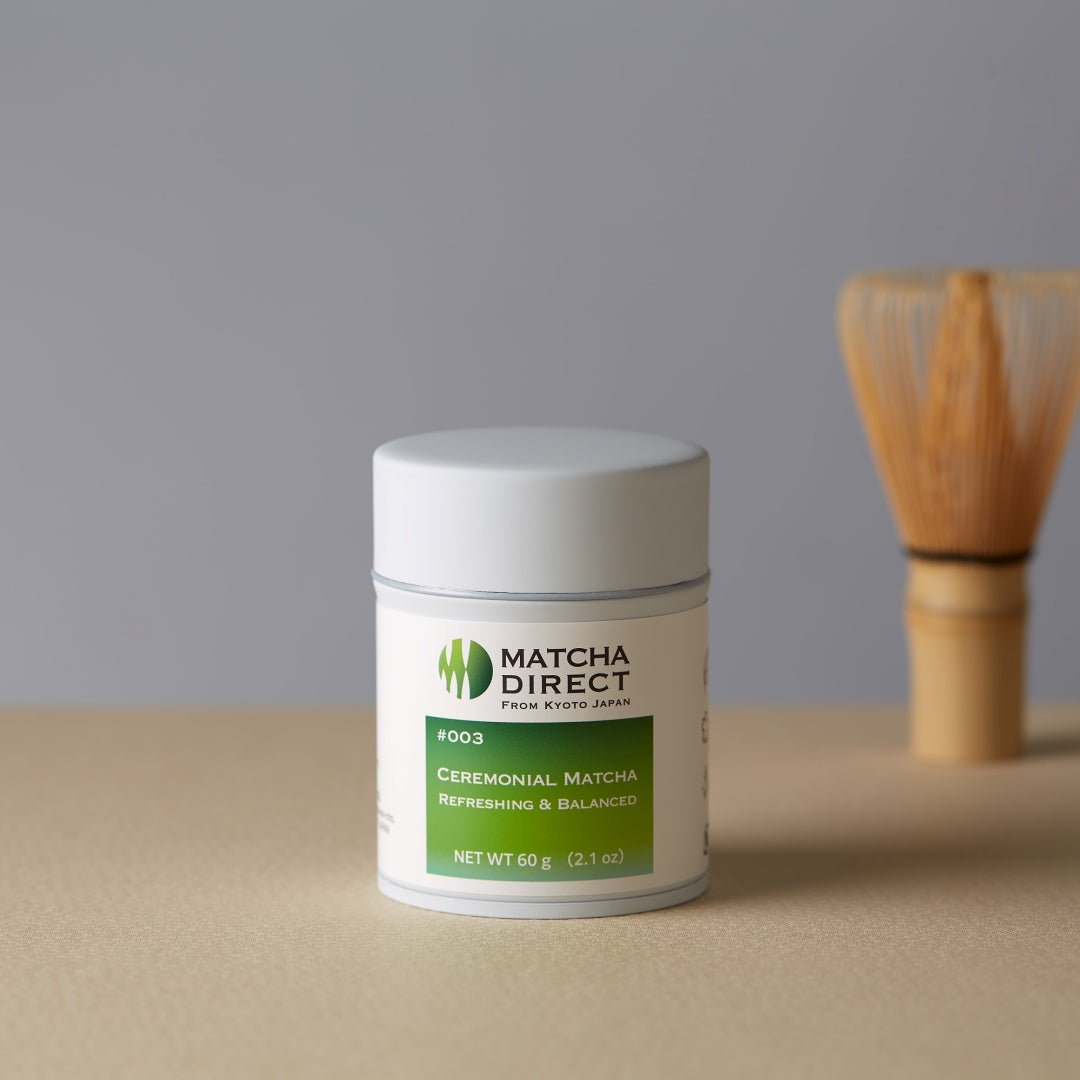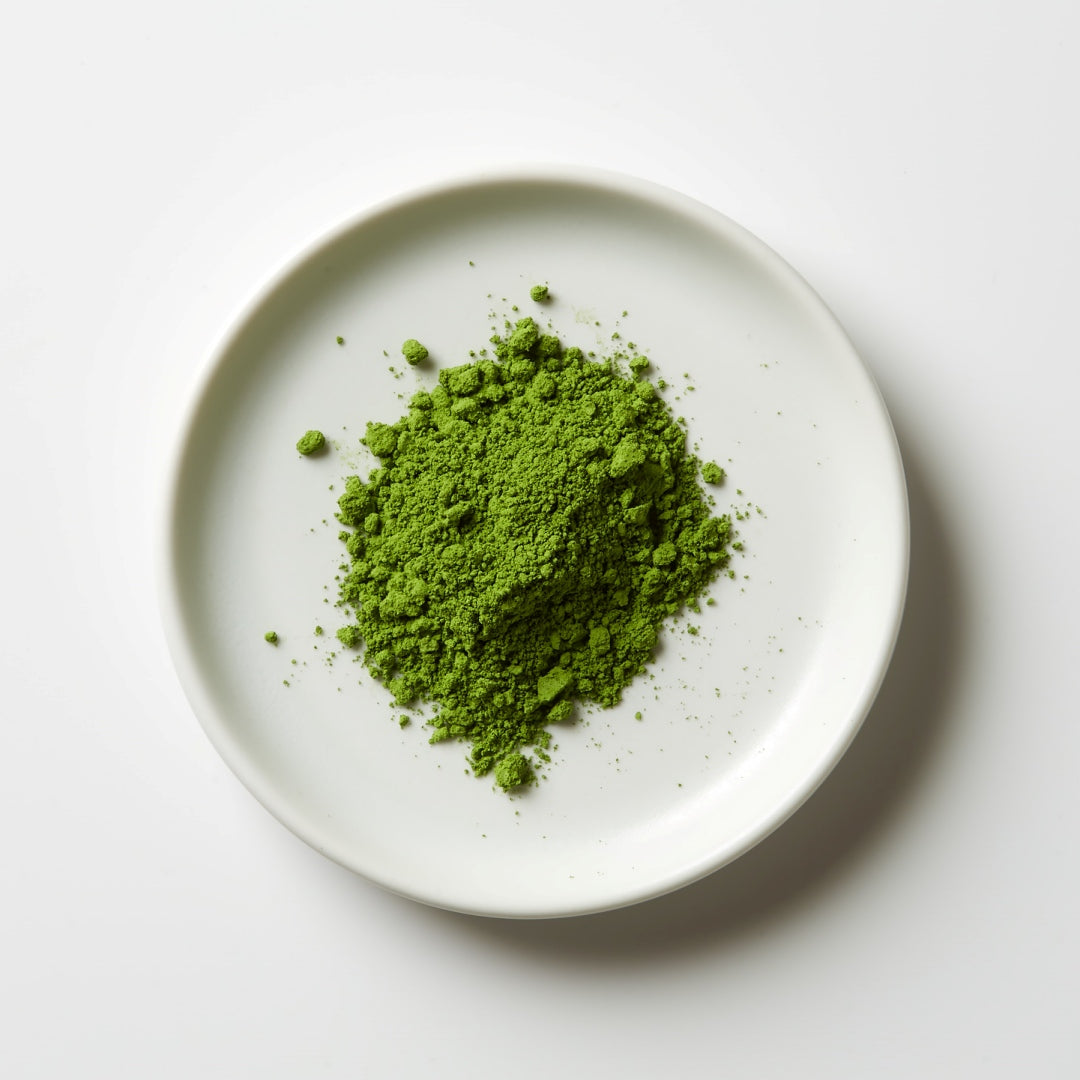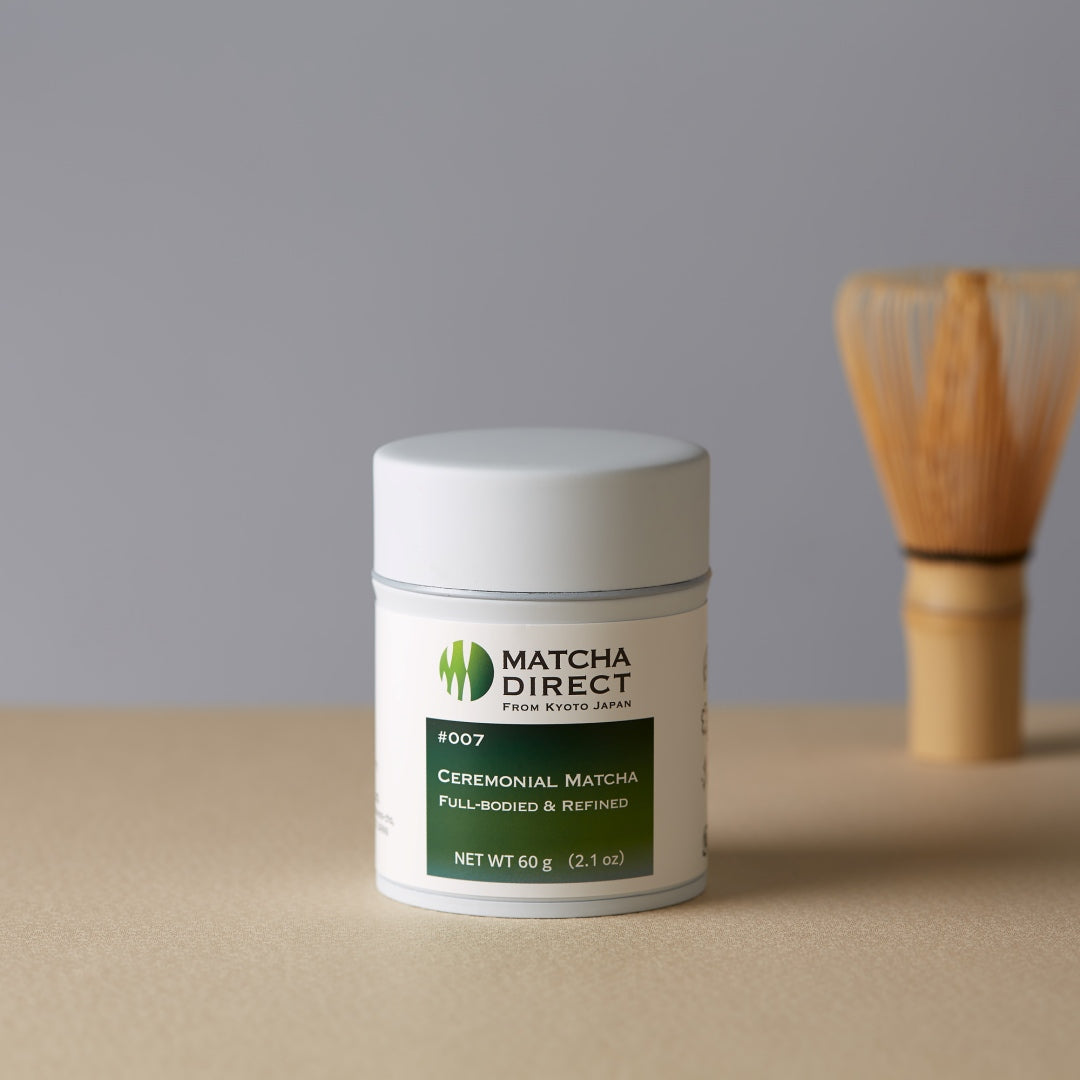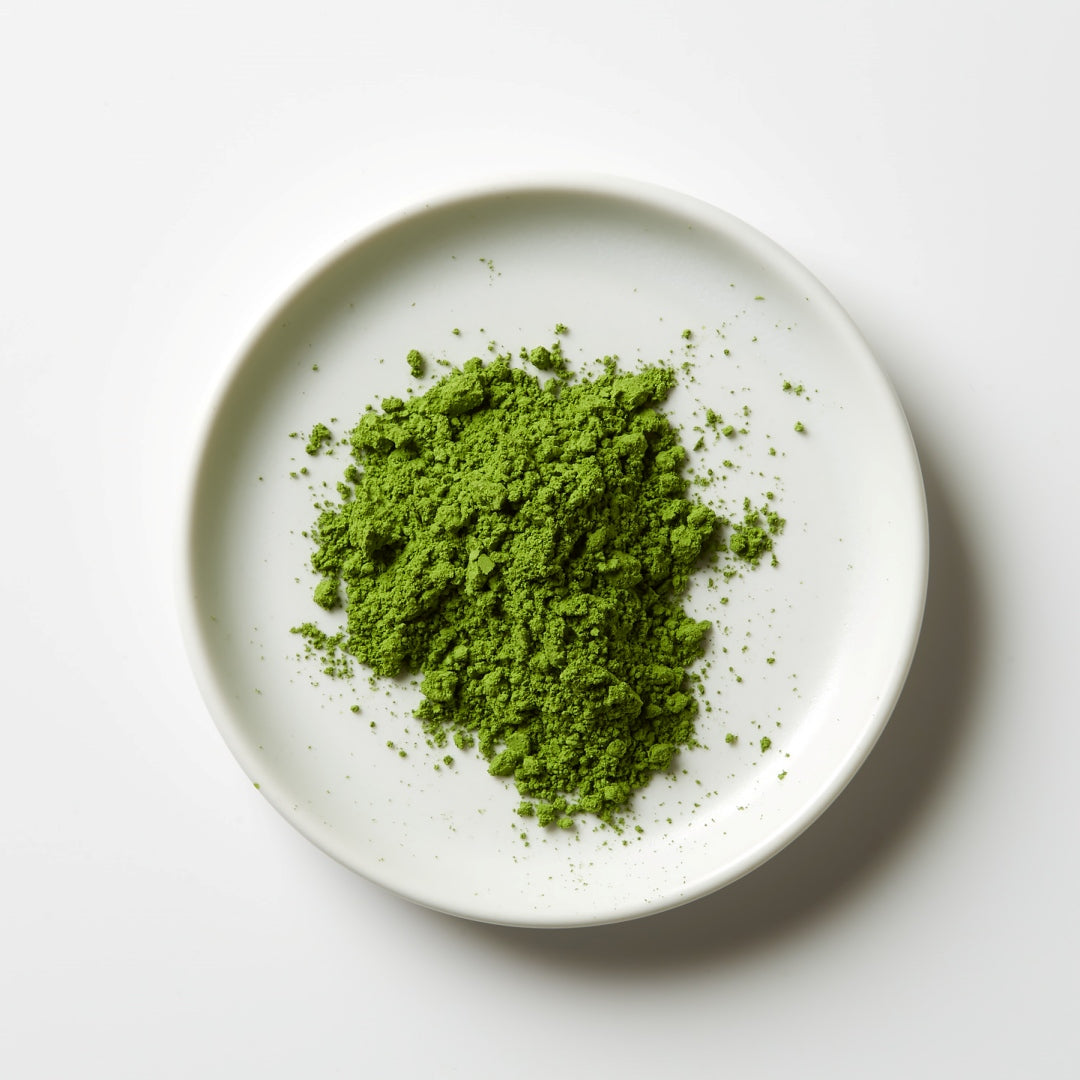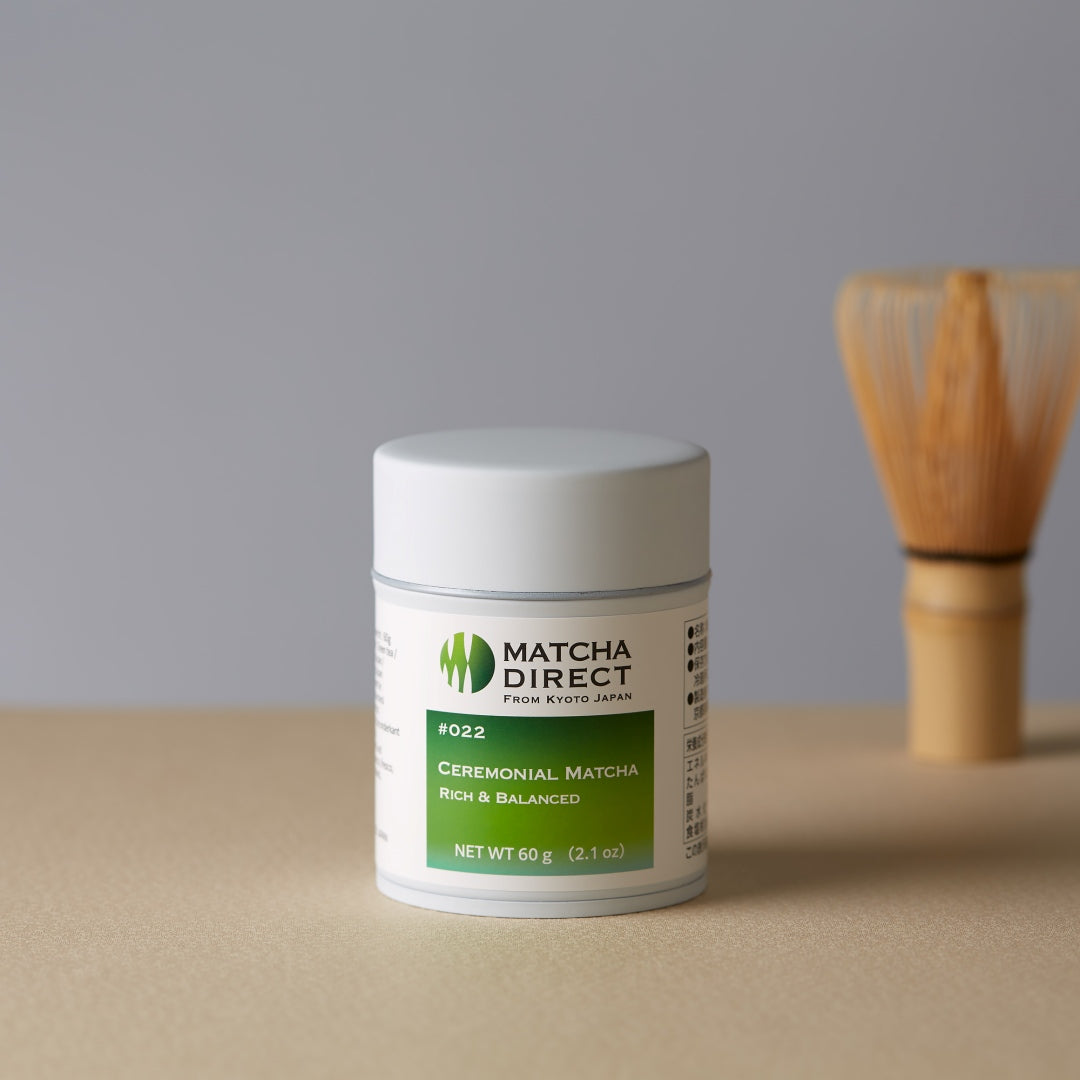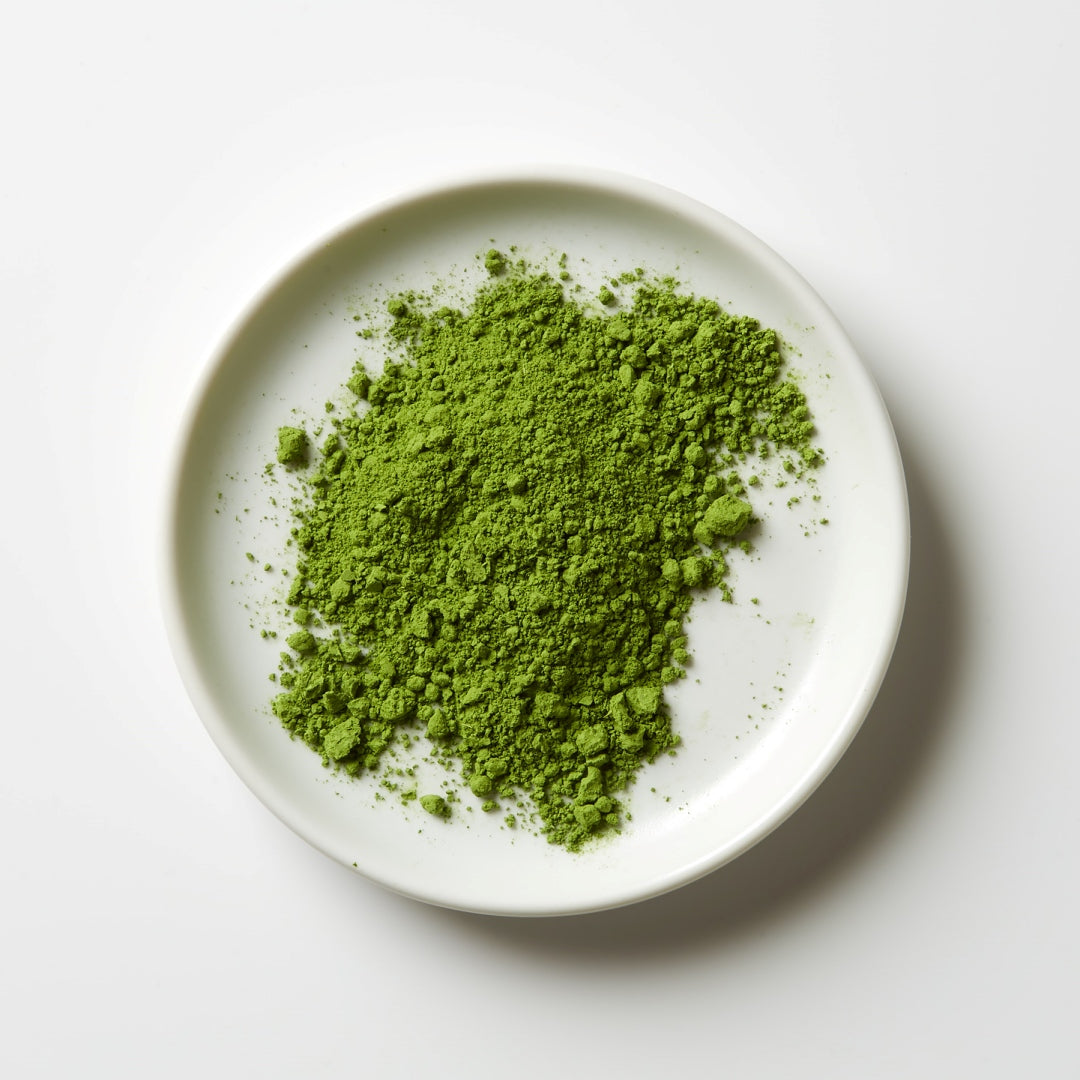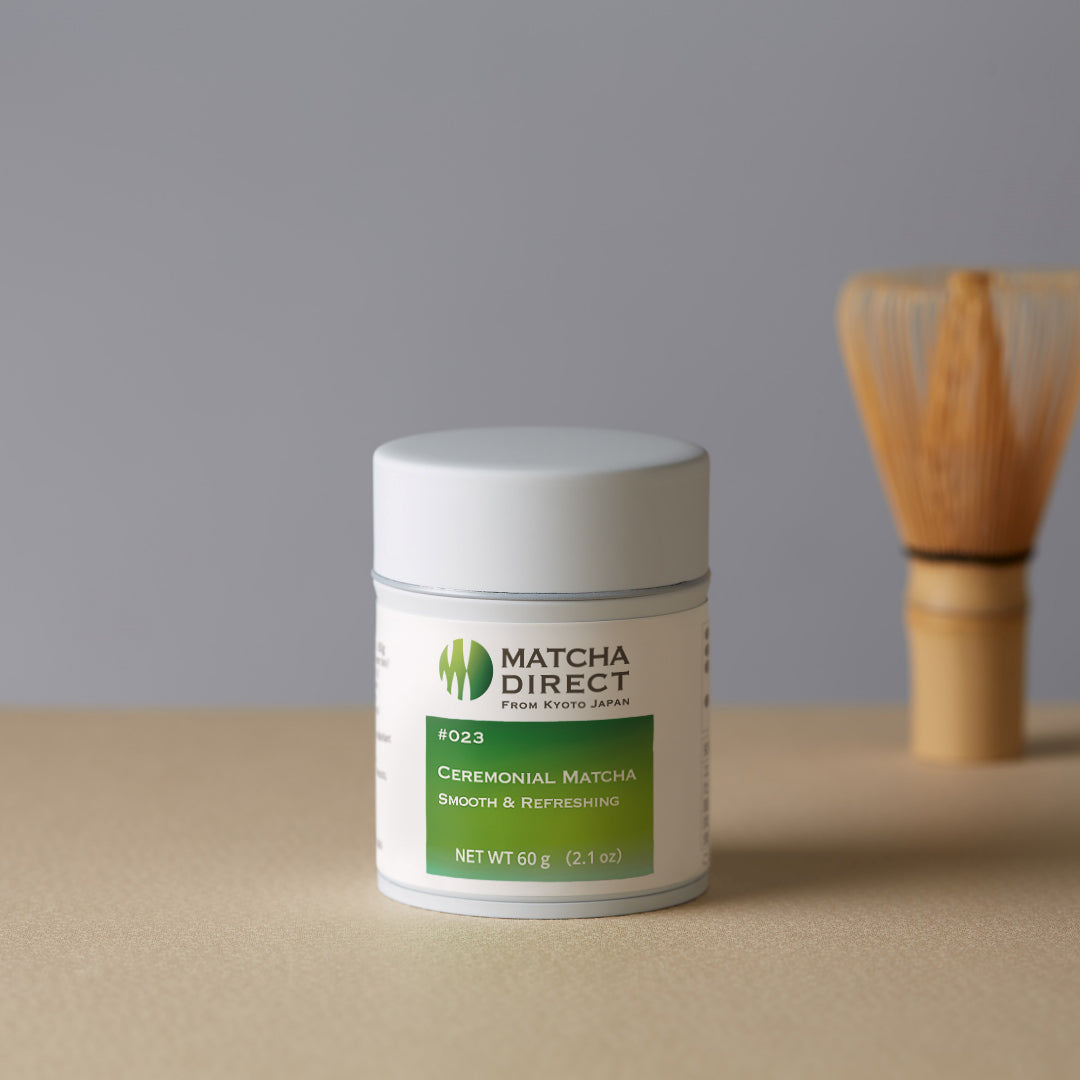How Much Caffeine is Contained in Matcha vs Coffee?
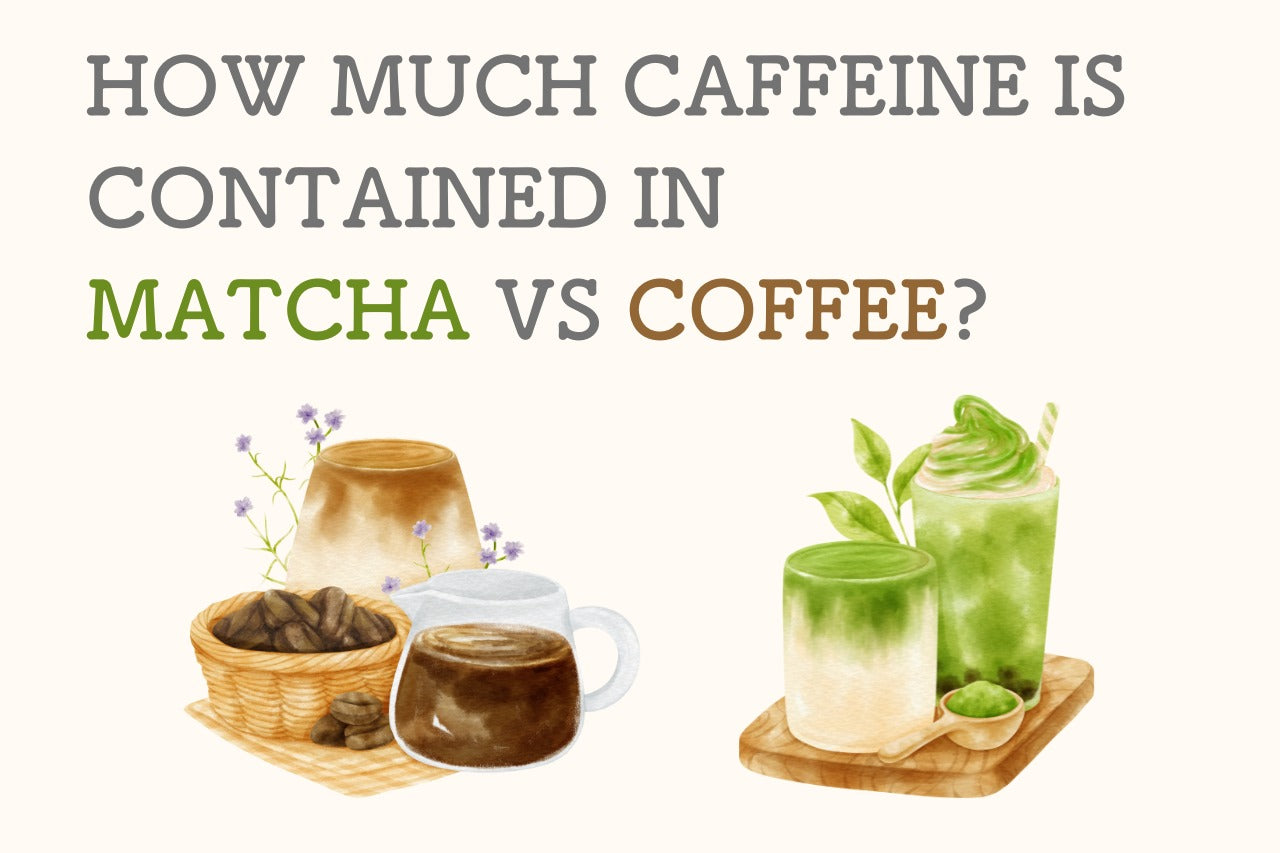
Matcha is a traditional Japanese green tea that has gained popularity worldwide in recent years.
Known for its vibrant green color, rich flavor, and purported health benefits, matcha has been cherished in Japanese culture for centuries. However, its caffeine content might not be widely known.
In this article, we will detail the amount of caffeine in matcha compared to coffee and explore the characteristics of the caffeine in each.
What is Matcha?
Matcha is a type of green tea made using a special production method.
Unlike regular green tea such as sencha, the tea leaves are shaded from sunlight several weeks before harvest. This unique cultivation method allows the matcha leaves to develop a vivid green color.
By shading the leaves, the production of theanine, which is said to have relaxing effects, is promoted, resulting in tea leaves that are rich in sweetness and umami.
The harvested leaves are then carefully ground using stone mills to create a fine powder, resulting in matcha.
This labor-intensive production process results in a high-quality beverage with a deep flavor and rich nutrients.
Matcha is not only enjoyed casually at home but also plays a crucial role in traditional Japanese tea ceremony culture, offering an important experience in appreciating Japanese culture.
Caffeine Content in Matcha
Matcha contains not only theanine but also catechins with strong antioxidant properties and various vitamins with health benefits.
In addition to these nutrients, matcha also contains caffeine.
Matcha actually has a relatively high caffeine content, with about 32mg of caffeine per gram. Typically, about 2 grams of matcha are used to prepare a cup, meaning one cup of matcha contains approximately 64mg of caffeine.
Caffeine is said to have refreshing effects and enhance concentration, but excessive intake can have adverse health effects.
While matcha has an appealing flavor, it's important to consume it in moderation.
Side Effects of Caffeine
The U.S. Food and Drug Administration (FDA) provides detailed guidelines on the effects of caffeine on the human body. According to the FDA, healthy adults should limit their daily caffeine intake to 400mg.
One cup of matcha contains about 64mg of caffeine, but many other foods and drinks also contain caffeine. Therefore, consuming too much matcha could lead to excessive caffeine intake.
It is advisable to limit matcha consumption to about four cups per day.
Pregnant women need to be even more careful with their caffeine intake.
The American College of Obstetricians and Gynecologists (ACOG) recommends that pregnant women limit their daily caffeine intake to 200mg or less, which is half the amount for healthy adults.
Research on the effects of caffeine on unborn child is ongoing, but ACOG suggests that it is best for pregnant women to minimize caffeine intake. Therefore, pregnant women are advised to limit matcha and caffeine intake and opt for other beverages when possible.
While individual tolerance to caffeine varies, it is best to adhere to a maximum daily intake of 400mg to minimize health risks.
Comparison of Caffeine in Matcha and Coffee
Difference in Caffeine Content Between Matcha and Coffee
When thinking of caffeinated beverages other than matcha, many people think of coffee. Surprisingly, matcha contains roughly the same amount of caffeine as coffee.
Let's compare the caffeine content in matcha and coffee in detail.
A typical cup of drip coffee made with about 10 grams of coffee powder contains roughly 60mg of caffeine. In contrast, a cup of matcha made with about 2 grams of matcha powder contains about 64mg of caffeine.
Thus, matcha and coffee have almost the same caffeine content, with matcha containing a slightly higher amount.
For reference, a cup of black tea contains about 30mg of caffeine, and a cup of sencha has about 20mg of caffeine.
This means that matcha and coffee contain 2 to 3 times more caffeine than black tea or sencha.
| Caffeine Content (per cup) | |
|---|---|
| Matcha | 64mg |
| Coffee | 60mg |
| Black Tea | 30mg |
| Sencha | 20mg |
Difference in Caffeine Effects Between Matcha and Coffee
While matcha and coffee contain almost the same amount of caffeine, there are significant differences in the effects and duration of caffeine in each.
The caffeine in coffee is rapidly absorbed by the body, so its effects appear quickly after consumption. However, this can also lead to a sudden drop in energy, known as a "caffeine crash."
On the other hand, matcha’s theanine content slows the absorption of caffeine, resulting in longer-lasting effects compared to coffee.
Therefore, the caffeine effects in matcha are characterized by gradual and sustained energy, unlike the immediate but short-lived effects of coffee.
While matcha and coffee have similar caffeine content, their effects differ significantly, and they should be chosen based on the intended use.
FAQs About Matcha and Caffeine
Q: When is it effective to consume matcha's caffeine?
A: Matcha’s caffeine content is similar to that of drip coffee. However, due to the effects of theanine, matcha’s caffeine provides longer-lasting effects compared to coffee. Therefore, it is suitable for situations where sustained concentration is needed.
Q: How long does the caffeine effect of matcha last?
A: Caffeine generally starts to take effect about 30 minutes after consumption and lasts for several hours.
A study in Japan showed that the caffeine effect peaked 60-120 minutes after consumption and lasted for 2-4 hours. The caffeine in matcha, known for its longer-lasting effects, may sustain its impact even longer.
Q: Does drinking matcha affect sleep?
A: The theanine in matcha is said to moderate the effects of caffeine, making it less likely to affect sleep compared to coffee.
However, since matcha does contain caffeine, it is best to avoid consuming it before bedtime.
For Those Who Want to Enjoy Matcha but Are Concerned About Caffeine
It is true that matcha contains a lot of caffeine, but it is also said to have components that moderate caffeine’s effects. Therefore, there might be a need for matcha even in situations where caffeine intake should be controlled.
For those who want to adjust their caffeine intake according to their situation, MATCHA DIRECT offers matcha with reduced caffeine.
By applying decaffeination techniques used for coffee, the caffeine content, which is usually over 3%, is reduced to less than 0.4%, while retaining the original flavor and nutrients of matcha.
Moreover, each order is carefully hand-ground after receiving the order, ensuring fresh matcha delivery.
https://matchadirect.kyoto/products/051-decaf-matcha-60g
Conclusion
While matcha contains about the same amount of caffeine as coffee, its caffeine effects are gradual and long-lasting.
These unique caffeine properties of matcha are believed to be due to the synergistic effects of its components like theanine.
As a result, drinking matcha can provide a relatively gentle awakening effect and sustained concentration, which may explain why it has been favored by tea masters for centuries.
Enjoying the rich flavor and health benefits of matcha while balancing the mind and body might be a worthwhile endeavor. Spending relaxing time with matcha can surely soothe the modern mind and enhance concentration.







